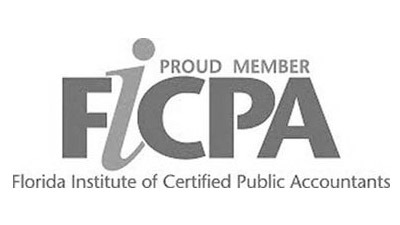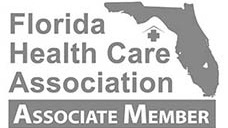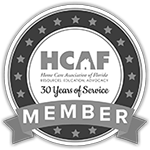Medicare & Medicaid Cost Reporting
Medicare and Medicaid cost reports require attention to detail and knowledge of changing regulations. We help providers complete accurate, timely reports that meet compliance and avoid audits or penalties. From data prep to audit support, we get it done.
Medicare Cost Report Preparation
We prepare accurate and compliant cost reports for timely CMS submission.
Medicare Compliance
We help ensure alignment with evolving Medicare rules and reporting standards.
CMS Audit Support
We assist providers during Medicare and Medicaid audits and settlement processes.
Who We Serve
We support skilled nursing facilities, rural health clinics, hospices, home health agencies, and more.
Ready to start your Medicare cost reporting process? Contact us to speak with a specialist today.

Medicare Cost Report Services
Medicare compliance is more than just meeting deadlines. It’s understanding federal and state reporting requirements, accurate financials and adapting to changing CMS rules.
- Electronic cost report submission (ECRS): We prepare and validate files in CMS accepted formats for timely submissions.
- CMS Form-339 Questionnaire: We complete and align this narrative with your cost report data to avoid red flags during MAC reviews.
- PPS Revenue & Expense Analyses: We review your Medicare Prospective Payment System data to ensure proper classification and alignment with your reported numbers.
- Financial Statement Support: We consult on Medicare compliant financial disclosures and documentation.
- Audit & Settlement Support: When CMS or MACs start reviewing you, we help through every step – from data validation to final negotiations.
- A/P & A/R Back Office Support: For providers needing operational stability we offer accounting solutions aligned with Medicare billing workflows.
- Financial Projections & Valuations: Whether you’re planning new services, facility changes or ownership transitions we help model scenarios with compliance in mind.
FAQ
When are Medicare cost reports due, and can extensions be granted?
Medicare cost reports are due 5 months after the end of the facility’s fiscal year . For example, a provider with a December 31 year-end must submit the cost report by May 31 of the following year. If the due date falls on a weekend or holiday, it rolls to the next business day. For nonstandard fiscal year periods (like when a provider’s fiscal year is shortened due to a termination or change of ownership), the due date is the later of 150 days after that period ends or 37 days after the Medicare contractor sends a reminder notice.
Extensions are very rare. CMS policy states no extension will be allowed except for extraordinary circumstances beyond the provider’s control (like a natural disaster like a flood or fire that severely disrupts operations). In practice, this means providers should plan to meet the standard deadline. Only in extreme situations (and with approval from the Medicare Administrative Contractor) would an extension be considered.
What happens if a Medicare cost report is filed late?
Filing late can have severe financial consequences. Medicare will suspend reimbursement payments if a cost report is not received by the due date. In fact, 100% of Medicare payments are withheld starting immediately after the missed deadline, essentially cutting off Medicare cash flow until the report is filed. Interest may also accrue on any overpayment balances during the delay.
Medicare does allow a brief grace period under certain conditions: a provider can request a temporary payment reduction (50% rate) instead of a full hold for up to 60 days past the deadline, but this must be requested before the cost report due date and is subject to MAC approval . By the 61st day after the due date, if the report still isn’t filed, Medicare will impose a 100% payment suspension. (Terminated providers have no grace period and face an immediate 100% payment hold for late filing .) In summary, missing the cost report deadline can stop a provider’s Medicare revenue, so file on time to avoid these penalties.
Do Florida providers need to file Medicaid cost reports, and how do state requirements differ?
Medicaid cost reporting requirements vary by state. Many states require annual cost reports from certain provider types (like hospitals or nursing facilities) to set Medicaid reimbursement rates or for supplemental payments. Florida, in particular, made a big change in 2019: the Florida Agency for Health Care Administration (AHCA) no longer requires annual Medicaid cost report submissions from non-state-owned hospitals. This change came after Florida moved its hospital payments to a prospective DRG system. In practical terms, most Florida hospitals do not have to file a separate Medicaid cost report each year as they did in the past. However, Florida still collects certain data for Medicaid Disproportionate Share Hospital (DSH) payments via a supplemental form (the DSR form) that hospitals must submit annually.
It’s important to note that Florida’s state-owned mental health hospitals are an exception – they continue to file the full CMS-2552 cost report (plus a state supplemental schedule) each year, with a deadline of November 30th for submission via the state’s web portal . Other states may have their own rules: for example, some states still require Medicaid cost reports for nursing homes or clinics, or have different due dates (often tied to the state fiscal year). Providers should always check their state Medicaid agency’s guidelines. In summary, unlike Medicare’s uniform federal requirement, Medicaid cost reporting is state-specific – and in Florida, most acute-care providers now see a reduced reporting burden due to the 2019 policy change.
What does it mean to file a “low utilization” or “no utilization” cost report?
These terms refer to simplified cost reporting options for providers with little or no Medicare volume. A “no utilization” cost report applies if the provider did not furnish any Medicare-covered services during the entire year. In that case, Medicare does not require a full set of cost report schedules – the provider may instead submit a streamlined report or a letter attesting that no Medicare services were provided. Essentially, if you had zero Medicare patients, you can avoid the complexity of a full cost report.A “low utilization” cost report is for providers with minimal Medicare activity – for instance, very few Medicare patient days or a very low amount of Medicare reimbursement for the year. In such cases, CMS may allow less than a full cost report to be filed. The Medicare Provider Reimbursement Manual outlines specific thresholds and criteria (in PRM Part 2, §110.A and §110.B) for qualifying as low-utilization. Typically, the Medicare Administrative Contractor must grant permission, and the provider might submit abbreviated schedules or a statement in lieu of the full report. This policy is designed to reduce burden when the effort of preparing a detailed report isn’t justified by the small volume of Medicare business. However, if you think your facility qualifies, you should confirm with your MAC in advance, because you will need their authorization to file a low-utilization or no-utilization report .
What is the PS&R report and how do we obtain it for cost reporting?
The Provider Statistical & Reimbursement (PS&R) report is an official summary of a provider’s Medicare services and payments for a given period. It’s a crucial data source for preparing the Medicare cost report, as it lists key statistics such as Medicare patient days, discharges, covered charges, and payments by type of service. Cost report worksheets (particularly for hospitals and skilled nursing facilities) rely on PS&R figures to ensure that Medicare utilization and revenue in the report match Medicare’s records.
To obtain the PS&R, providers must use CMS’s online portal. Each provider (or their agent) needs to register through the CMS Enterprise Identity Management (EIDM/HARP) system to access the PS&R application. Once registered and approved, you can log in and request a Summary PS&R report for your cost report year (e.g., by entering the start and end dates of the fiscal year) . The system will generate a report (usually within 24 hours) that you can download in PDF or CSV format. It’s the provider’s responsibility to retrieve this information – MACs will not automatically send PS&R data to you. After you get the PS&R, use it to fill out the Medicare-utilization sections of the cost report. If the PS&R data doesn’t match your internal records, investigate the discrepancies. In most cases, providers will defer to the PS&R for reporting, since it’s the official source that auditors use to verify Medicare payments. Keep in mind that PS&R detail reports (claim-level data) can also be requested if needed (usually one detailed report per year is provided at no charge, with a fee for additional requests) – these can help reconcile any differences if questions arise.
How do we report charity care and bad debts on Worksheet S-10?
Worksheet S-10 is the section of the hospital cost report that captures uncompensated care data – specifically, charity care and bad debt expenses. Accurate S-10 reporting is critical because it affects Medicare DSH (Disproportionate Share Hospital) uncompensated care payments. Providers should follow the definitions and instructions for this worksheet carefully. Key points include:
Charity Care: Report the amount of charges for services provided to patients approved under the hospital’s financial assistance or charity care policy (for which the hospital did not expect payment). This is usually reported as the total cost (derived from charges) of charity care for uninsured patients and under-insured patient discounts. Charity care entries must match your documented charity care policy, and you should exclude any amounts that were reimbursed or that relate to Medicare bad debt. For example, insured patients’ deductibles or copays that were written off to charity can be included only if those amounts were not claimed as Medicare bad debt elsewhere.
Medicare Bad Debt: This is uncollected patient responsibility amounts (deductibles and coinsurance) for Medicare beneficiaries, which Medicare can reimburse a portion of. While these are reported on S-10 as part of total uncompensated care, the allowable Medicare bad debts are also claimed on a separate schedule in the cost report. Ensure that any Medicare bad debt amounts are properly supported and meet Medicare criteria (e.g. beneficiary was indigent or efforts were made to collect). Do not double-count them as charity care – Medicare bad debts should be distinctly identified and are reimbursed via the cost report’s settlement, not via DSH payments.
Documentation & Listing: All figures on S-10 must be supported by detailed, patient-specific listings. CMS and the MACs require hospitals to maintain lists of every patient account included in charity care and bad debt totals, with data such as patient ID, dates of service, charges, payments, write-off amounts, etc. . Before submitting your cost report, review these listings for accuracy and completeness – ensure no patients are counted twice, remove any items that don’t meet the charity policy criteria, and make sure write-off dates fall in the correct fiscal year. Submitting a clean, error-free S-10 listing can prevent audit adjustments down the line.
Compliance and Updates: Note that auditors have been increasingly focused on S-10 data. Recent S-10 audits have looked at whether the charity care reported is supported by the hospital’s own Financial Assistance Policy and accounting records, and whether bad debts are truly uncompensated after reasonable collection efforts. CMS also updated S-10 instructions in late 2022 (Transmittal 18) to clarify reporting requirements, so make sure you’re using the latest guidance. In short, report uncompensated care faithfully according to the rules, and keep thorough documentation (policies, patient logs, etc.) in case your S-10 is selected for audit.
What are common audit triggers or areas of concern in cost reports?
Medicare cost reports undergo desk review and occasional audits by the MACs (and Medicaid cost reports may be reviewed by state agencies or their contractors). Common areas of scrutiny include:
Uncompensated Care (Worksheet S-10): As discussed, S-10 data is now used for distributing DSH payments, so auditors verify charity care and bad debt entries. They will check the amounts tie to the hospital’s financial records and charity policy, often requesting the charity care policy itself, detailed patient listings, and proof that reported bad debts were written off in accordance with Medicare rules . Inaccurate S-10 reporting is a top reason for audit adjustments in recent years (e.g. charity amounts not matching policy definitions, or inclusion of unsupported debts).* Medicare Bad Debts: If you claim Medicare bad debt reimbursement (on the cost report’s Exhibit for bad debts), expect the MAC to review it. Common issues include missing documentation (e.g. lack of remittance advice showing the claim was unpaid due to beneficiary responsibility), inclusion of accounts that were not truly written off to bad debt in the cost reporting year, or lack of indigence determination for charity cases. MACs often require a detailed bad debt log and will sample accounts to ensure compliance. Any account that doesn’t meet the requirements can be disallowed, which reduces reimbursement.
Disproportionate Share (DSH) Data: For hospitals eligible for DSH, the Medicaid eligible days and SSI ratio data reported can be reviewed. In some cases, providers file amendments to update Medicaid patient days when states provide updated eligibility files. Auditors check that the days counts are supported by state rosters or internal logs. CMS even permits a one-time amendment within 12 months after the due date solely to revise DSH Medicaid days, due to the importance of accurate DSH data.
Allowable Cost Adjustments: Auditors look for non-allowable costs that should not be reimbursed by Medicare. Common examples are entertainment costs, lobbying expenses, certain advertising or marketing costs, fines and penalties, etc., which must be removed on the cost report. They also examine related-party transactions to ensure costs are reported at the proper cost basis (not inflated by profit). If something stands out (e.g. a high administrative expense or management fee), they may request invoices or more detail.
Home Office or Management Fees: If your hospital or facility is part of a chain with a home office, the home office cost allocation is subject to audit. The MAC might ask for the Home Office Cost Statement or details supporting the allocated costs.
Reconciliation to Financial Statements: A fundamental check is that the total expenses and statistics reported in the cost report can be reconciled to the provider’s accounting records. Auditors may request the trial balance used to prepare the cost report and will confirm that, for example, the total patient days or total expenses reported match the hospital’s books (with appropriate adjustments). Large discrepancies or unsupported reclassifications/reconciling items will raise flags. To prepare for an audit or desk review, providers should maintain comprehensive documentation for all of the above. This includes keeping patient records and listings for at least 5 years after the cost report is filed, as required by CMS . Key supporting documents – such as the charity care policy, bad debt log with Medicare remittance codes, DSH eligible days backup, working trial balances, and any worksheets for allocations – should be organized and accessible. By anticipating these focus areas, you can address questions quickly and reduce the likelihood of adverse adjustments in an audit.
What happens to cost reports when a provider has a change of ownership or closes during the year?
When a Medicare-certified provider undergoes a Change of Ownership (CHOW), or terminates its provider agreement, special cost reporting rules apply. Instead of filing one cost report for the full year, the reporting is split into partial-year cost reports for each ownership period. In a typical CHOW scenario, the seller (prior owner) will file a final cost report covering from the beginning of the fiscal year up to the date of sale/transfer. The buyer (new owner) will then file a startup cost report from the transfer date through the end of that fiscal year (or through the end of their chosen fiscal year, if it changes) . Each of those reports is treated like a terminating cost report for the respective entity.
The due date for a CHOW-related cost report is accelerated in some cases. Medicare regulations require that cost reports following a termination or CHOW effective date are due no later than 5 months after that date. As mentioned earlier, Medicare contractors often use the rule of thumb: the due date is the greater of 150 days after the period ends or 37 days after the MAC issues a reminder notice. In practice, that usually works out to roughly the standard 5-month window. Both the seller and buyer should coordinate because each is responsible for filing for their respective period. The Medicare Administrative Contractor should be notified of the ownership change (usually via the CMS-855A enrollment process and a Tie-In Notice), and they will assign new provider numbers or provider sub-unit numbers as needed. If a provider closes permanently (terminates), a similar approach is taken: a final cost report covering from the start of the fiscal year up to the closure date must be filed within 5 months of termination. All Medicare overpayments or underpayments for that abbreviated period will be settled in that final cost report. Failing to file a required CHOW or termination cost report can result in the same payment suspension penalties discussed earlier, and it may complicate the transfer of ownership (for example, Medicare might withhold payments to the new owner until the prior owner’s report is settled). So during mergers, acquisitions or closures, make sure cost reporting responsibilities are clearly outlined in the transition plan (often the sales agreement specifies which party will file the terminating report ). Always notify your MAC of the change and confirm the fiscal year-end that the new owner will use going forward, as a change in ownership can allow the new entity to adopt a different fiscal year if desired.
Can we change a cost report after we file if we find errors or new information?
Yes – providers can amend a cost report after initial submission, under certain conditions. If you realize that something was reported incorrectly or omitted (for example, a misclassification of costs or an update to Medicaid days or bad debts), you should act quickly. Amended cost reports are accepted only before the final settlement (NPR) is issued on the original report. In fact, if the MAC has started their desk review or audit, they may not allow an amendment for items under review, so it’s best to submit corrections as soon as possible . Typically, an amendment should be submitted with a cover letter explaining the reasons for the revision and detailing the specific changes. You must also include any revised worksheets (via the electronic cost report files) and a newly signed certification page for the amended report. The MAC will review whether the changes are valid and acceptable; if they deny certain changes, those issues might have to be pursued through a formal appeal or reopening process. There are a few special cases to note. CMS has specific guidance on post-filing changes: for example, a hospital can submit one amended cost report within 12 months of the original due date to revise the DSH calculation with updated Medicaid eligible days, if the state provides new eligibility data after the initial filing. This policy (from the Federal Register) was meant to accommodate the state’s data timing. Similarly, if errors are found in Worksheet S-10 uncompensated care data, CMS expects hospitals to correct those before any S-10 audit starts – hospitals can provide revised charity/bad debt listings to the MAC, and potentially amend the cost report, to ensure the audited S-10 data is accurate. After a cost report is settled (i.e. an NPR is issued), changes are only possible through a reopening (which a provider must request within 3 years of the NPR) or an appeal if there’s a disputed adjustment.
In summary, you can fix mistakes by amending the cost report, but do so as soon as possible. Check all critical data before the initial submission to minimize the need for amendments. If an amendment is needed, provide a clear explanation and robust support for the changes to increase the chances the MAC will accept the revised report . It’s also a good idea to contact your MAC’s audit/reimbursement department to let them know what’s happening; they can tell you if the cost report is still open for amendment or if another route is required.
Who can we contact for cost reporting questions?
For Medicare cost reporting questions, your first stop should be your Medicare Administrative Contractor (MAC). Each MAC has an Audit & Reimbursement department that handles cost report submissions and settlements. They often publish FAQs and have dedicated email inboxes or phone numbers for cost report questions. For example, in Florida (Jurisdiction N MAC), First Coast Service Options has a cost report email. Don’t hesitate to contact them for clarification on instructions or submission procedures – part of their job is to help providers comply with the rules. If the question is about Medicaid cost reports or state-specific forms, contact your state Medicaid agency or its contractor. In Florida, for example, Medicaid cost report and DSH questions may be directed to the AHCA or their contractor (Myers and Stauffer, who manages Florida’s cost report portal and DSH audits). They can answer state-specific filing requirements or policy changes.
Finally, many providers also seek guidance from consulting or accounting firms that specialize in healthcare reimbursement. Firms that do cost reporting can provide education, review services or even prepare the cost report for you. They stay current on the latest rules (e.g. new forms or transmittals from CMS) and can help with complex situations like acquisitions or unusual transactions. While this FAQ provides general answers, complex issues may require professional advice. Always make sure any external guidance is based on official CMS instructions or state guidelines. When in doubt, refer to the Medicare Provider Reimbursement Manual and the cost report instructions, and ask your MAC for clarification – get your questions answered ahead of time to avoid cost report mistakes.
Verified and Assured
Every Medicare and Medicaid cost report we prepare is backed by a multi-step internal review process to ensure accuracy, consistency, and compliance with CMS requirements. From data validation to submission formatting, we follow strict protocols to minimize audit risk and avoid costly errors. With our support, you can be confident that your report is both complete and audit-ready.




